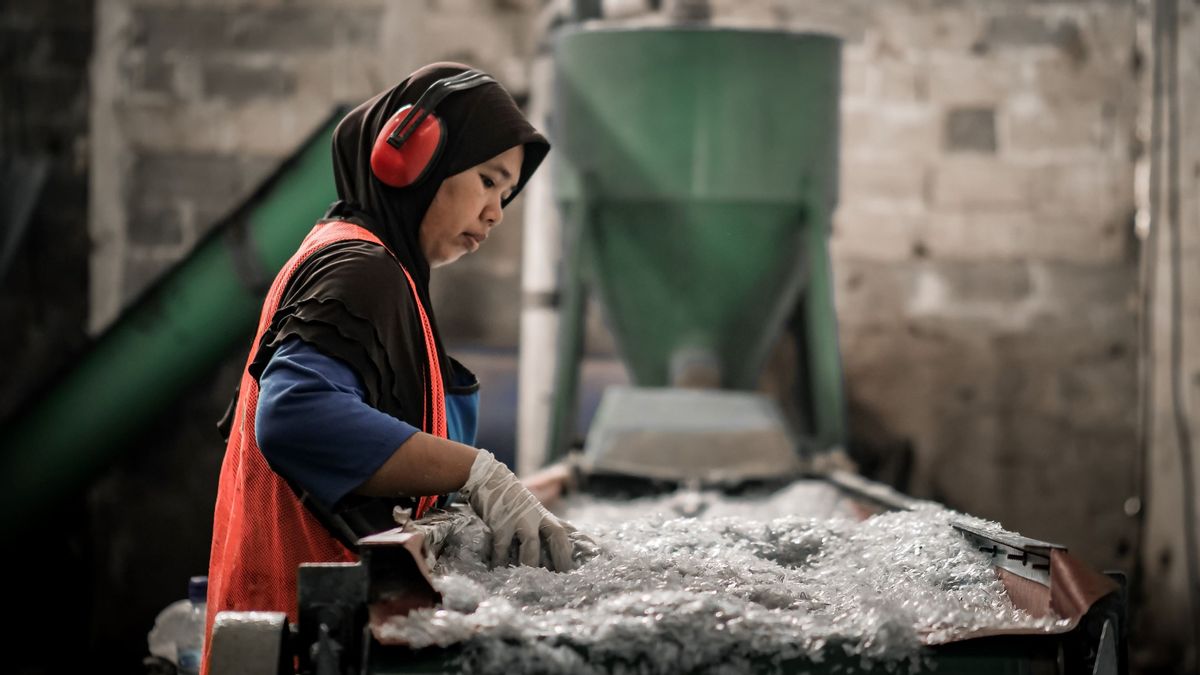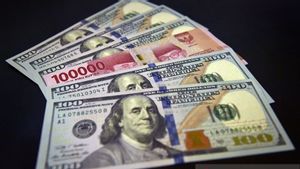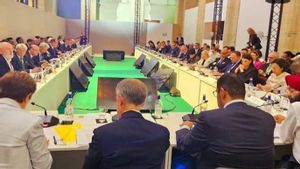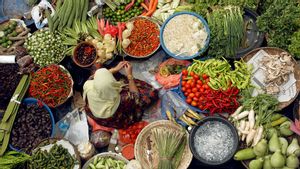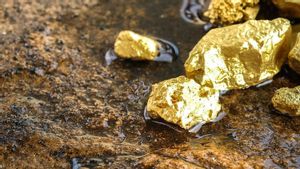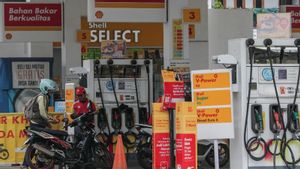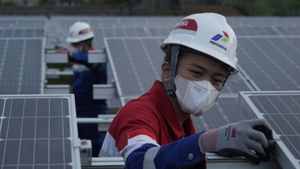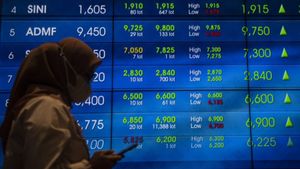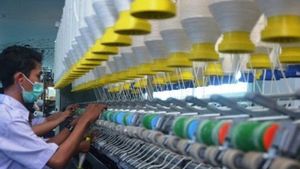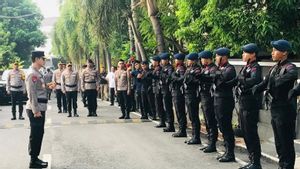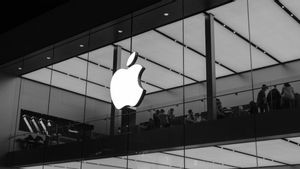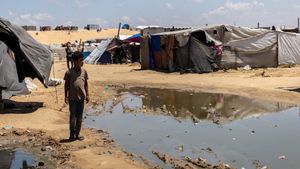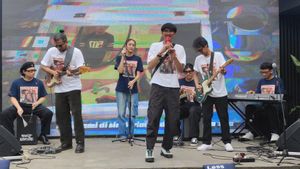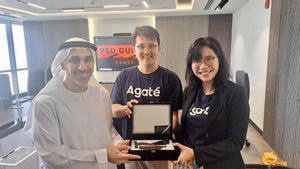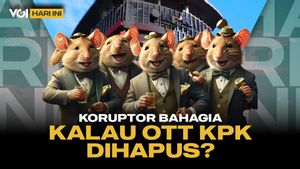JAKARTA - The Indonesian government has set a target for Indonesia to Clean Waste in 2025, through 30 percent reduction in waste and 70 percent handling waste by 2025. To realize this target, various initiatives have been carried out, including increasing education on the importance of waste management and encouraging the involvement of various parties in dealing with waste problems.
Regarding waste management education, the government has launched National Waste Care Day (HPSN) since 2006. This year, the HPSN celebration will take place during February and March 2024 is referred to as the 2024 National Waste Care Month.
Based on data from the KLHK National Waste Management Information System (SIPSN), out of 17 million tons of waste generation in 2023, the Indonesian Government has managed to manage around 66.47 percent of waste (11.5 million tons of waste). Of the total waste generation, almost 16 percent (2.78 million tons) of waste was successfully reduced and 50 percent (8.8 million tons) of waste was successfully handled.
However, to achieve the 100 percent waste management target, an active role of various parties is still needed to implement strategic waste management.
Based on a study by The Economic, Social and Environmental Benefits of A Circular Economy in Indonesia, the circular economy is one solution to deal with waste problems. Departing from this potential, AQUA as one of the government's strategic partners, runs the #BijakBerplastic program to support the implementation of the circular economy in Indonesia.
Starting in 2018, #BijakBerplastic has three main focuses that are the pillars of the circular economy approach, namely the development of waste collection infrastructure, education to consumers and the public, as well as innovation in product packaging.
In the pillar of developing waste collection infrastructure at the #BijakBerplastic initiative, AQUA contributed to building a recycling business unit (RIBU). Recycling Business Unit (RIBU) is a social model for recycling business to reprocess plastic bottle waste into plastic waste which is the raw material for recycled products.
Currently, the supply of raw materials in the form of recycled PET is still a challenge in the implementation of the circular and recycling economy in Indonesia, therefore, sellers and waste collection infrastructure such as RBU equipped with supporting equipment play an important role. Until now, AQUA has developed and accompanied up to 6 units of RBU, including RBU South Tangerang.
Juleha or who is familiarly called Leha, the operational coordinator at RBU AQUA in South Tangerang, said that the South Tangerang RBU has a mission to manage as much waste as possible to reduce the generation of waste, especially in the Greater Jakarta area.
"In carrying out this mission, we have consistently increased our waste collection and partnership targets. As of 2024, we are targeting 150 tons of waste collected per month. For waste collection, we have partnered with 500 garbage collectors, 20 waste banks, and collaborated with a number of food and beverage outlets, government agencies, schools and several other industrial outlets to achieve this target. We are targeting additional partnerships of up to 20 percent in 2024," he said in a written statement, Sunday, February 25.
Leha added, on its way, the operational activities of the South Tangerang RBU continued to grow. To collect more plastic waste and reach more collectors, RBU already has satellites or branches of RBU in Bekasi, Sukabumi and Gunung Sindur.
We see more than just the company's sustainability initiative, but as a business social that continues to grow. Thus, we hope that the RBU will not only contribute to waste management, but can also encourage the empowerment of the surrounding community, "explained Leha. According to Leha, before the RBU is present in South Tangerang, scavengers, sellers and collectors find it difficult to sell plastic bottle waste (PET) and other economical-valued waste (Non PET). The RBU also empowers scavengers, sellers, and garbage collectors. They are given education and included in programs to improve welfare and health such as mobile health checks, obtaining BPJS Health cards, and giving vitamins. The number of beneficiaries reaches 100 individuals per month. They also get basic food assistance for improving family nutrition.
This is in line with the story of Mrs. Sarmanah, one of the vendors of South Tangerang's RBU partners, who also expressed his gratitude for the presence of RBU.
RIBU provides the highest purchase price and provides scheduled waste collection facilities 2 times a week. This makes it easier for me, because only having a cart is certainly difficult if I have to go back and forth to deliver. Plus, I run stalls alone after my husband leaves. Alhamdulillah, my friends in the RBU management always help me so that the housing needs are met. In addition, I also receive basic food assistance and mobile checks. I am very grateful to RBU and will always work together and support the development of RBU," said Mrs. Sarmanah.
In addition to developing the RBU, AQUA has also developed and accompanied 10 collection centers, 20 TPS3R, more than 100 units of waste bank and 4 parent waste banks with a network of approximately 7947 scavengers throughout Indonesia.
SEE ALSO:
AQUA's commitment to helping overcome plastic waste problems is also realized through product packaging innovation by presenting AQUA Life with 100 percent rPET (recycled PET) packaging and utilization of up to 25 percent of recycled materials throughout its products. The rPET used comes from the AQUA collection ecosystem such as RBU, Integrated Waste Processing Site (TPST), TPS3R, as well as a waste bank that has partnered with AQUA, "said Karyanto Wibowo, Director of Sustainable Development Danone Indonesia.
AQUA's various series of efforts and collaborations in encouraging the implementation of the circular economy have made the company succeed in collecting 22,000 tons of plastic waste which is then recycled into raw materials for new bottle packaging or other products that have economic value.
"AQUA believes that the circular economic model is one of the best solutions in overcoming waste problems in Indonesia. This method is also able to increase family income which leads to improving living standards, as well as applying inclusiveness to many parties and sectors so that they can participate and feel the positive impact of this initiative. This is in line with the theme of National Waste Care Day 2024, namely overcoming plastic waste in a productive way that also provides benefits to the whole community, including improving the welfare of the related informal sector," concluded Karyanto.
The English, Chinese, Japanese, Arabic, and French versions are automatically generated by the AI. So there may still be inaccuracies in translating, please always see Indonesian as our main language. (system supported by DigitalSiber.id)
